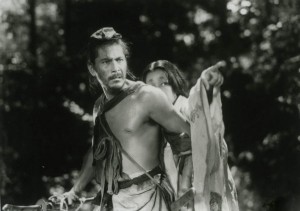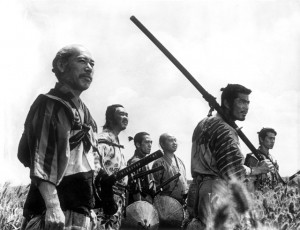Just as classic literature is integral to the true appreciation of reading, classic film is equally important for the love of filmmaking. Akira Kurosawa is responsible for many landmark films. His love of Shakespeare and classical drama is beautifully interpreted within his films. He was so revered during his career that his films were often adapted (plagiarized) through other genres, American Westerns being the primary benefactors.
Rashomon (1951) explores the difficulties in seeking the truth through many perspectives. A trial is conducted after a crime has been committed. Rashomon beautifully reveals the frailties of the various witnesses. Kurosawa recreates the crime through their various perspectives. Unlike many directors, Kurosawa often chose long lenses to keep the cameras at a distance from his actors. The results can be like watching theater on location.
Seven Samurai (1954) is an epic tale of a peasant farm village needing assistance to ward off a band of thieves. Toshiro Mifune is a raw and untamed presence in the film. Seven Samurai is thought by many to be one of the finest films ever made. The camera work is superb, as is every other aspect of the movie. It was later remade in America by John Sturges and renamed The Magnificent Seven.















